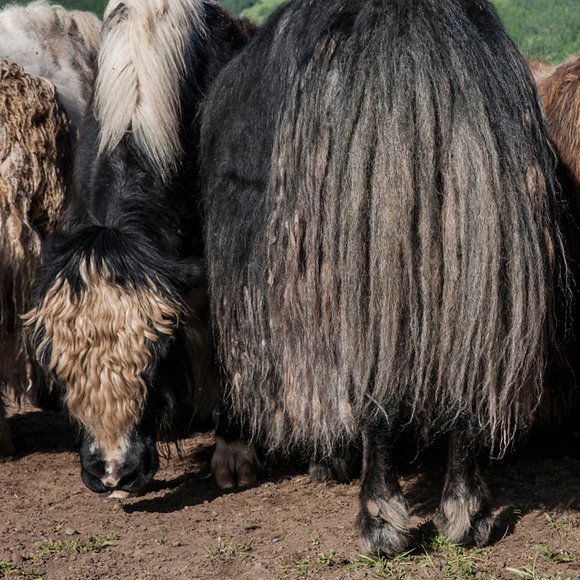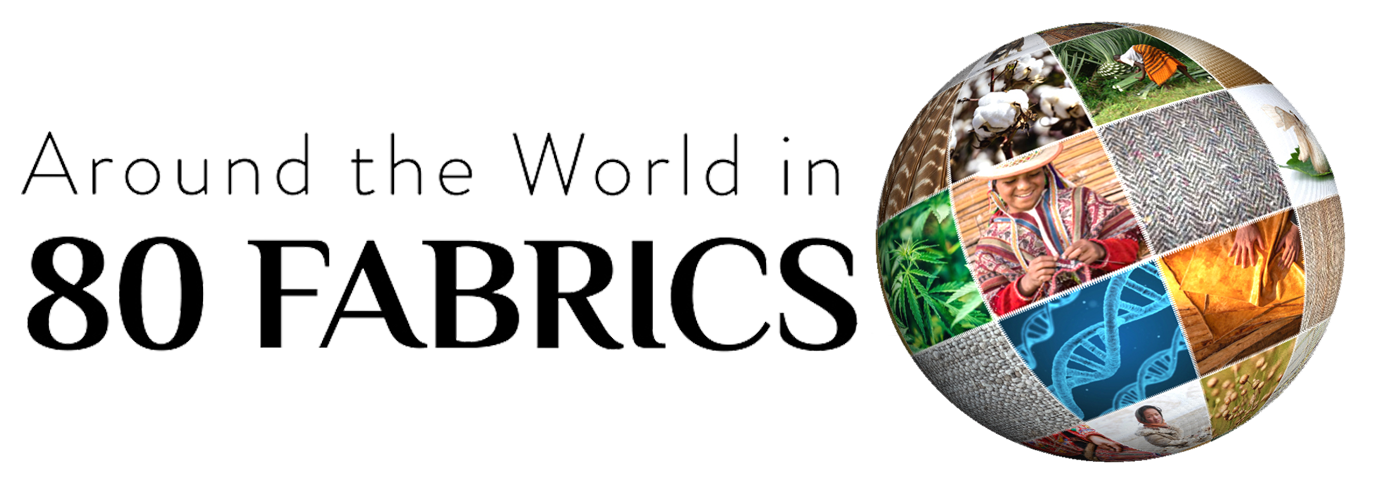
FABRIC: YAK
Region: Mongolia
Fabric Name:
Yak (English, derived from Tibetan word Yag) Mongolian: Sarlagk
Origin:
Domesticated Bos grunniens, Poephagus grunniens (Wild: Bos mutus)
Who made our fabric:
TENGRI, Mongolia
Natural history and ecology:
Yaks are less destructive to grasslands than cashmere goats due to the shape of their mouths and the way they eat grass, enabling grasslands to regenerate more easily, unlike sheep and goats that tend to eat the roots of the grass and pluck out the grass.
What makes this so special:
This material is made from yak Bos grunniens of the Mongolian Khangai. Yak wool exhibits natural softness and is hypoallergenic, water-resistant, and superior in warmth to merino wool. Supplier/maker, Nancy Johnson, established House of Tengri to provide a more environmentally friendly substitute for cashmere and is a champion of both yak and camel fabrics. Johnson is helping support and conserve the nomadic lifestyles of Mongolian herders and reduce problems caused by the swift industrialization and desertification of their land due to the overgrazing from massive herds of destructive cashmere goats.
…Cloth from an animal that can withstand -40 degrees F…
“For thousands of years, nomadic herder families in Mongolia’s Khangai Mountains have stewarded the land and animals such as the semi-wild Khangai yak.
The world’s softest, rarest virgin yak fibres can be hand-combed only once – from Baby Khangai yaks, when they shed their first winter coats in the spring.”
Image, House of Tengri

“The fashion and textile industries are broken. Sustainable credentials are compromised. Supply chains are opaque. This must change. Tengri is pioneering a new way of doing business.”
— Nancy Johnston/Yak
Nancy Johnston
Meet, Nancy Johnston, founder of Tengri, who became fascinated by the relationship between people, animals, and the land while traveling in Mongolia.
Nancy spent time living with a nomadic herder family. Many of their animals had died due to land desertification and a prolonged winter. The family was desperate to save money for their young daughter’s education and feared for their future. Seeing an opportunity for the herders to profit from Noble Fibres, Nancy wrote the original Tengri business plan on the only paper to hand – a chocolate wrapper.
Back in London, Nancy founded Tengri by building a dynamic network of highly experienced experts in fiber and yarn technology, fabric production, and sustainability.
Under Nancy’s leadership, Tengri has received global recognition from Sustainia for the Top 100 Sustainable Business Solutions, supporting four UN Sustainable Development Goals. Tengri was the first UK company to take the UN Business for Biodiversity pledge.
Nancy is a member of the UK Business & Biodiversity Forum, which helps businesses to manage biodiversity impacts and risks in their supply chain – an issue at the heart of the way Tengri operates.
She is also a recipient of the Asian Women of Achievement Entrepreneur Award and one of Grant Thornton’s 100 Faces of a Vibrant Economy 2017. Her media appearances include the FT, CNN, Forbes, The Times, Daily Telegraph and BBC World Service.




